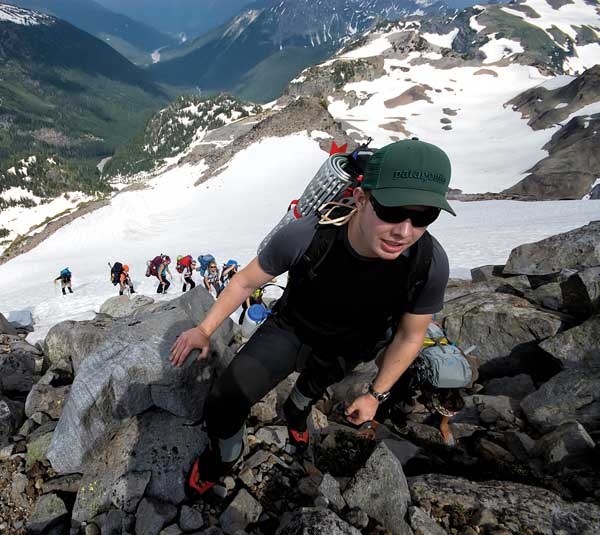
by Mindy Roberts, Safety Chair of The Mountaineers
We’ve all read stories in the news or Accidents in North American Mountaineering or our annual safety reports of bad things happening to good, smart people, often with years of experience.
It’s so easy to dismiss them as reckless, especially when they are faceless names we don’t know. Or maybe we experience empathy and say, “If only they had improved that one technical skill, it wouldn’t have happened.” But were they really reckless or lacking in technical skill?
In February 2012, 16 highly skilled skiers and snowboarders headed to the Tunnel Creek drainage outside of Stevens Pass. The group included professionals and people known for their safety consciousness, yet three people died in the ensuing avalanche. Why? How could this have happened? These people taught skiing, they knew the terrain, and they were skilled and experienced.
Both the New York Times and Outside magazine produced truly gripping articles that provide deep personal insights to the group decision-making process. If you think “that can’t happen to me,” I urge you to read the Tunnel Creek articles and recognize that yes, it can happen to you. Bad things happen to good, smart, skilled, experienced backcountry travelers. “I should have said something” was a common refrain among the survivors. Several sensed that something was up but for a variety of reasons did not speak up.
So what can you do?
The most important thing is to recognize that yes, bad things can happen to you and your teams.
Our brains have evolved to aid and to protect us, and being part of the herd helps… sometimes. Consider that when someone is part of a group that is making an objectively poor decision, only one in three people speaks up. Seriously.
Don’t believe me? Look up “simple skill to overcome peer pressure” or the “Asch conformity experiment” on YouTube. Wanting to be part of the crowd is an incredibly strong check on speaking up. Yet speaking up when you sense something awry is probably the single best action you can take to make your group more skilled at making decisions.
Leaders need to create a safe atmosphere for speaking up. You can set the expectation that people speak up when they see something that seems awry. Too often after incidents occur someone had that feeling in the pit of the stomach — that something is not quite right.
This can be counter to the traditional way that people lead backcountry trips, where there is one strong leader making all the calls. I know when I lead trips I ask my whole team and especially my assistant leaders to please speak up any time they feel something awry. I would rather survive and maybe have hurt feelings (actually you won’t hurt my feelings if you speak up) than die thinking you are incredibly polite. Speaking up isn’t just important to the team — my own life depends on it, and I need my team to watch my back.
Some of you may be thinking that this is just too much bother. It would take forever, and you wouldn’t make your objective. To you I offer one of my favorite quotes from former US Secretary of State and US Army General Colin Powell: “The day soldiers stop bringing you their problems is the day you have stopped leading them. They have either lost confidence that you can help them or concluded that you do not care. Either case is a failure of leadership.”
My advice for improving decisions? “Be heard, and not herd.” Speaking up when you see things differently. Don’t simply assume that everyone else sees what you do and deem it safe. Your team mates are counting on you, and I’m counting on you to watch my back.
Reduce your risk and make better decisions
Remember RICE:
- Recognize – You are not immune to making poor decisions. No one makes good decisions 100% of the time. Learn from the annual Mountaineers safety reports and take the recommendations to heart.
- Introspect – Start thinking critically about your own experiences. After every activity identify the part with the greatest risk and ask yourself or others what you could do differently in the future. “Getting away with it” doesn’t mean it was safe.
- Create – Leaders need to create a safe atmosphere for participants to speak up. This may be hardest for leaders who assume they need to make all the calls based on their own skills and experience.
- Express – Say something when you sense something awry. “I guess I see things a little differently” could open up your group to discussions that could avoid injuries. This expression of polite doubt is also far more effective than shouting or worse – remaining silent.
This article originally appeared in our Winter 2016 issue of Mountaineer magazine. To view the original article in magazine form and read more stories from our publication, click here.
 Mindy Roberts
Mindy Roberts